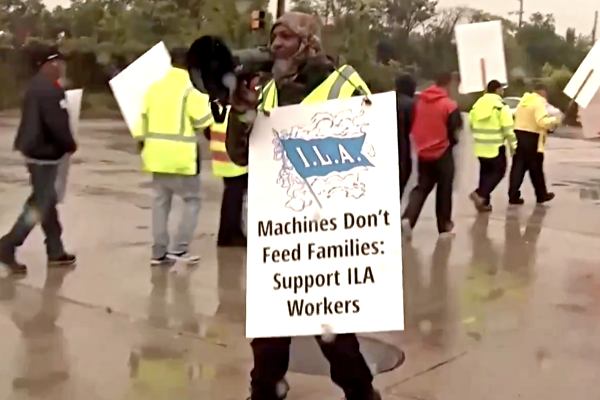
One day after dockworkers at 36 United States-based East and Gulf Coast ports, from Maine to Texas, officially walked off the job—when a deal between the International Longshoremen’s Association (ILA) and the United States Maritime Alliance (USMX) could not be struck by 12:00 AM ET on October 1—the National Retail Federation (NRF), in conjunction with more than 270 trade associations representing manufacturers, farmers and agribusinesses, wholesalers, retailers, restaurants, importers, exporters, distributors, transportation and logistics providers, and other supply chain stakeholders, penned a letter to President Biden, calling for the White House to intervene in an effort to bring the strike to an end.
Copied on the letter were various White House Cabinet members and officials, including: Copied on the letter were various White House Cabinet members and officials, including:
Julie Su, Acting Secretary, Department of Labor; Pete Buttigieg, Secretary, Department of Transportation; Gina Raimondo, Secretary, Department of Commerce; Tom Vilsack, Secretary, Department of Agriculture; Alejandro Mayorkas, Secretary, Department of Homeland Security; and Lael Brainard, Director, National Economic Council; and Members of Congress.
“We are calling upon you and the administration to immediately use your authorities to end the strike, which has shut down all East Coast and Gulf Coast container ports,” the letter stated. “Given the dire situation and the massive negative ramifications for our industries and the economy, we implore you to take immediate action to resolve this situation expeditiously.”
The letter further explained that the strike has become “an issue of national and economic security,” which will cost the economy billions of dollars per day while impacting businesses of all sizes—not party to the negotiations—yet reliant on the free flow of imported and exported goods through the East and Gulf Coast ports.
“These port closures mean that our farmers are unable to sell their crops to overseas markets, manufacturers are unable to receive critical components for their manufacturing facilities, retailers won’t be able to get their holiday merchandise in time, and many other industries will be negatively impacted,” the letter stated. “The longer a strike occurs, the more severe the economic impact, and the longer it will take to recover.”
Visit Logistics Management to view the full story.